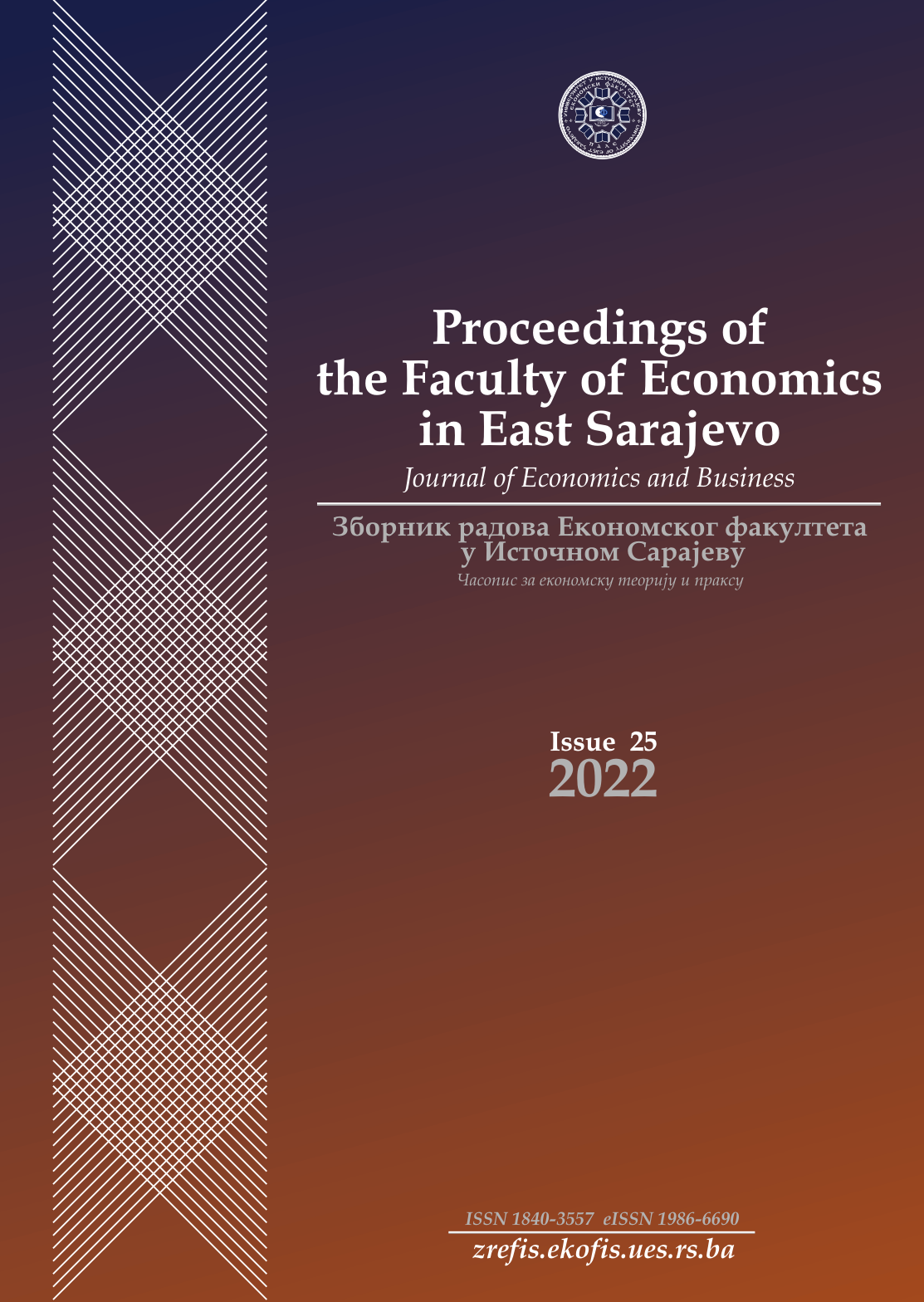OKUN`S LAW IN BOSNIA AND HERZEGOVINA (1996-2021): AN EMPIRICAL ANALYSIS OF OKUN`S COEFFICIENT VARIATIONS
DOI:
https://doi.org/10.7251/ZREFIS2225011AAbstract
Economic growth and unemployment are two macroeconomic quantities that have the greatest research interest among economists. The connection established between these two variables, which also describes their inverse relationship, is known in the literature as Okun's law. The subject of this research was to examine Okun's regularity between the movement of gross domestic product and unemployment in Bosnia and Herzegovina during the period from 1996 to 2021. We divided the observed period into two parts, and we observed the total sample, pre-crisis and post-crisis period, and we took 2008 and the economic crisis as the relevant year. The aim of the work was to quantify Okun's coefficient for the entire sample, pre-crisis and post-crisis period. The research results showed the existence of Okun's coefficient with variations of the coefficient over time. Namely, the value of the coefficient in the period from 1996 to 2008 is higher in absolute terms compared to the entire period, as well as the post-crisis period. The value of the coefficient for Bosnia and Herzegovina in the precrisis period was 0.79, and 0.66 is the calculated value of the coefficient for the post-crisis period. The coefficient value of 0.76 was calculated for the period from 1996 to 2021. From this we can conclude that the elasticity of the coefficient in Bosnia and Herzegovina is higher in the post-crisis period compared to the pre-crisis period.

